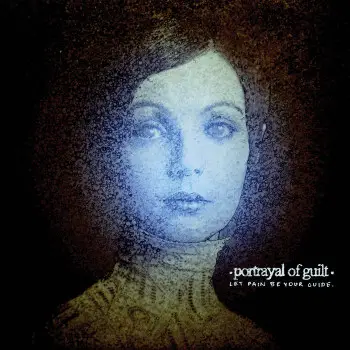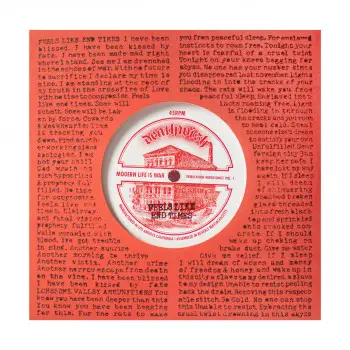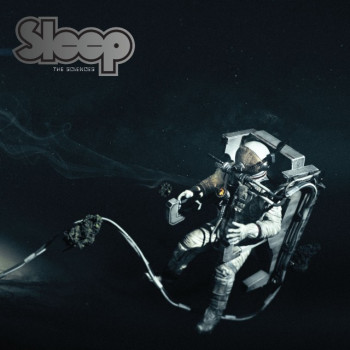Turning our attention toward music’s heavier side, Atwood Magazine is proud to present some of our favorite metal and hardcore records released in 2018!
Sometimes peace-of-mind can come from someone screaming at you. As 2018 draws to a close, there has been time to reflect on a news cycle that feels like it hasn’t stopped slamming our heads against a brick wall. While a number of albums, shows, songs, and artists have offered a reprieve from a year that’s been stressful and tumultuous, sometimes it felt like the best possible thing to do was to just lock yourself in a room and yell. Heavy metal was built on fantastical escapism, and hardcore was created around community. Even though these genres and their contemporaries are often associated with aggression, there is a lot of togetherness in these genres, and this year, in particular, some of the best records from these scenes have promoted this philosophy. A number of established names have released giant records to further show they’re the best, some older artists have recaptured some of their former glory, and a number of newer acts have broken through to show that metal and hardcore will always be a genre for the young.
Whether it’s a band like Venom keeping their old sound alive, American Nightmare returning after many years, or Funeral Chic pounding out new ground, there will always be a place for headbanging and mosh pits. This is the year in loud.
— —
The Year in Loud: 2018
We Already Lost the World – Birds in Row

The French hardcore trio Birds in Row has been chipping away at making a record with this big an impact for years. The anonymous band have the sort of throat shredding vocals and straight up instrumentals that make you think their lead vocalist is grabbing your shoulders with spit flying in your face. They can tone down, and it helps get their lyrics across, but the barebones of it all is part of what makes We Already Lost the World such a death-defying record. They mesh with their Deathwish Records colleagues, but they stand a foot above so many by how intense they actually sound.
What’s most striking about this album is it is most definitely a love album. The political nature of the record is summed up in the title as if to say, “Well, we’re all fucked anyway; we might as well love.” There’s a lot of pain, but the mission statement is to love. A song like “I Don’t Dance” is practically a breakup song as they scream, “Here there’s nothing left for us,” but then on “Love is Political,” they scream,
Love is defiance
Defiance is necessary
Love is disobedience
Love is political.
What’s most drawn into Birds In Row is their emphasis on this point. There are a lot of terrible things going on right now, and there are a lot of people who want nothing more than to see other people unhappy. Sometimes, we can be those assholes, but by taking sometime and loving each other is just as important as getting angry or sad. You might as well scream about it.
Ordinary Corrupt Human Love – Deafheaven

Being an innovative artist can’t be simple. San Francisco’s Deafheaven have actively redefined what a black metal band can be for a second time with Ordinary Corrupt Human Love. As the album opens with a spoken word performance over a piano, it shows that this won’t be nearly as pulverizing as Sunbather or New Bermuda, but it does offer the same sweeping soundscapes as those two. The band definitely embraces some more stylized tones that have more in common with hard rock and power metal than before. About halfway through “Honeycomb,” Kerry McCoy rips a solo that sounds like it’s lifted from a HIM song, but these flourishes help show that there is a large amount of positivity in Deafheaven’s music.
In the past, it’s been easy to let George Clarke’s soaring screams fade to the background, but he’s higher in the mix here than on past releases. There’s a lot of beauty in Ordinary Corrupt Human Love; on “Canary Yellow,” Clarke sings, “I have wondered about the language of flowers.” Many of Clarke’s more wistful lyrics are greeted with more clean tones that help the band show that they can do more than just pummel an audience, even if a lot of those songs usually build to massive heights (See: “Worthless Animal”).
Let Pain Be Your Guide – Portrayal of Guilt

On their full length debut, the Texas band are grimy and epic. This is all perfectly summed up in the opening track, “Daymare.” It’s a song that has the sort of grooves that hardcore often lean on, the soaring instrumentals that bands like Deafheaven have popularized, and a lead singer that can transition between shrieks to dirty guttural growls, and that’s just par for the course on this 22-minute long album. There are eerie tone setting interludes like “Chamber of Misery Pt. II” or songs that have a more straightforward punk tilt like “Your War.” This is a record that does exactly as it says it will. If you Let Pain Be Your Guide, you can navigate the array of emotions that Portrayal of Guilt spin this record into. “Among Friends” is an onslaught of an admission of depression and impostor syndrome. The closing track, “Until We’re Dust” almost leaves you feeling back where you started. It’s just as uneasy and just as vicious a cycle as depression is, and it rips.
Only Love– The Armed

While plenty of hardcore releases this year were exciting, none were quite as inventive as The Armed’s Only Love. The band incorporates electronic sounds into pummeling tracks easily, and the trading vocalists also blend and chop up their tracks in ways that are exciting. There are moments when if the vocals were removed, you may think this was just a regular electronic track, but there are still plenty of blistering drums and distorted guitars that rarely play in a traditional manner that hardcore bands often do. This is an album that’s punk to a T in that it rarely conforms to any preconceived notion of what punk rock is. It has shades of hardcore or riot grrrls, but it’s something truly only belonging to The Armed.
Keeping with the band’s mysterious nature, the lyrics are often these short poetic musings that are often difficult to decipher. Themes of love, home, heartbreak, and gentrification do appear, but the band seem even more dead set on hiding their identity than the also anonymous Birds in Row. A song like “Nowhere to be Found” could pass as a post-punk duet, but then a song like “Parody Warning” borders on grindcore, and none of these takes seem like they’re forced or abrupt. The Armed just seem like a band with a variety of interest who know how to morph their sounds into a conglomerate.
Tribulation Work Songs, Vol. 1-2 – Modern Life is War

On two seven-inches, the hardcore vets have explored the condition of humanity with a medley of different styles. They all take the simple punk rock idea of fighting against being stuck in a system that doesn’t care about you. “Feels Like End Times” hits the right groove, and it makes you want to throw a brick through a window. The second verse really is a call to arms:
Some will submit. Some will be taken by force
Cowards & Weakhearts: Time is tracking you down
Find another working class apologist
I am not your shill
God wrath on rich hypocrites
A prophecy fulfilled
No time for compromise
The band also utilize different styles to get these songs across. “Lonesome Valley Ammunition” draws a little bit more from speed metal, and “Indianapolis Talking Blues” is a spoken word track over a blues instrumental.
The Sciences – Sleep

With their first album in ten years, the doom metal greats delivered an album that was exactly what first draws a lot of people into metal (and music, in general): it’s just fun. With the same lurking tempo that many of their early works developed, The Sciences is a cleaner and more digestible album. The band pay tribute to the band that paved the way for the sludgy, stoner metal they make on the aptly titled “Giza Butler.” This is the type of album where you lock yourself in with your friends, pass a joint around, and just drift off with the beast that you imagine wrote these lurking riffs.
Stranger Fruit – Zeal & Ardor

On their sophomore album, Zeal & Ardor have tightened up their sound into a more cohesive release than 2016’s Devil is Fine. Stranger Fruit toes the line between a metal record and a blues-rock album. Songs like “The Hermit” or “Coagula” set the mood for the type of eerie fusion you’re going to hear, but Manuel Gagneux’s work is best emphasized in songs like “Row Row” or “Don’t You Dare.” The former begins as a bouncing sing-along, before the titular lyrics go from being just a syllable Gagneux can bump off as a catchy number to an apocalyptic order. In “Don’t You Dare,” the song builds in a terrifying fashion, and as Gagneux sings “Don’t you dare look away, boy,” he strikes terror in the listener. The band is perhaps most fully realized on the closing song though “Built on Ashes.” It’s all at once melancholic, triumphant, and sad. It stirs up all sorts of emotions that the rest of the record does not, and it’s perhaps the perfect summation of the record.
Firepower – Judas Priest

Judas Priest has suffered a few shakeups in the past few years. Following the departure of founding guitarist K. K. Downing, lead guitarist Glenn Tipton was diagnosed with Parkinson’s disease. Like Slayer or Ozzy Osbourne, this could’ve been a sign for Priest to throw in the towel, but it appears that this only lit a fire underneath the band. The band has returned with a vengeance on Firepower. Rob Halford’s voice hasn’t sounded this confident since the band’s classic era. This album has the clean, powerful sound that makes Firepower sound like it’s a follow up to Painkiller. Tipton and Richie Faulkner both bring both heavier riffs to Priest like on “Lightning Strike” or embracing more straightforward blues like on “Lone Wolf,” but of course, there’s plenty of distortion. This album acts as something of a reminder that although Priest can write great, catchy metal, their best songs were often their deep cuts. There isn’t a riff like “Breaking The Law,” but there isn’t a bad song on Firepower.
— — — —









